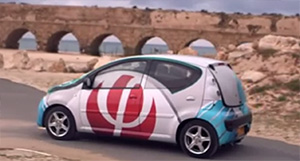Man, I hate April Fools’ Day. What used to be a fun day of pranks on friends has evolved into a massive competition between websites to see whose ‘joke’ can go the most viral. I’ll admit some are funny, though when there’s so much BS posted to the ‘net it drowns out the real, actual, valid news. So, I’ll be posting no jokes here. I’m sure you’ve seen too many today already!
Traditional TV is dying…
TV networks have resisted the push by Apple, Google, and others to go to more of a channel less, video-on-demand business model for years…but they’re fighting a losing battle. The consumers want it, and the technology makes it easy. The latest development is seeing these video-on-demand companies offer original programming…essentially starting to become a new sort of TV ‘channel’. Netflix has House of Cards and Lilyhammer (with eight more shows in the pipeline), and Amazon has announced a new show called ‘Betas’. When people start turning to these internet-based companies for their TV shows, the traditional model of cable boxes and TV guide ‘schedules’ will quickly become obsolete. As someone who ‘cut the cord‘ years ago, I can’t wait!
AT-AT loft bed
 Wow, this is cool! A loft bed that looks like an incredibly detailed AT-AT. Nice!
Wow, this is cool! A loft bed that looks like an incredibly detailed AT-AT. Nice!
(via LikeCool)
Running a car…on aluminum?
 Phinergy has developed a battery that’s, well, a bit difficult to categorize. It’s powered by aluminum and air, but it’s not readily rechargeable. Every 200 miles it needs to be refilled with water, and after 1000 miles, the aluminum plates need to be replaced. So, what’s the point? Well, it has some potential as a range-extender used in conjunction with a conventional rechargeable battery. This Al battery could be a ‘reserve’, or for long road trips, actually replaced enroute (the cost of the raw material being replaced would be ~$50, so it might not cost much to do this). It’s an interesting idea…and ideas like this take creative marketing and some lucky business deals to work out. We’ll see.
Phinergy has developed a battery that’s, well, a bit difficult to categorize. It’s powered by aluminum and air, but it’s not readily rechargeable. Every 200 miles it needs to be refilled with water, and after 1000 miles, the aluminum plates need to be replaced. So, what’s the point? Well, it has some potential as a range-extender used in conjunction with a conventional rechargeable battery. This Al battery could be a ‘reserve’, or for long road trips, actually replaced enroute (the cost of the raw material being replaced would be ~$50, so it might not cost much to do this). It’s an interesting idea…and ideas like this take creative marketing and some lucky business deals to work out. We’ll see.
(read more at extremetech)

